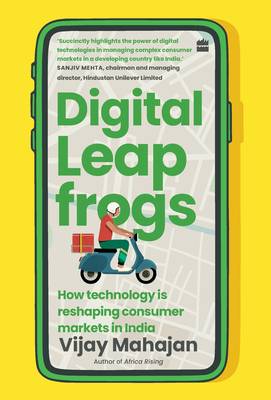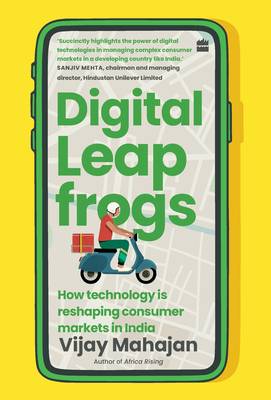
- Retrait gratuit dans votre magasin Club
- 7.000.000 titres dans notre catalogue
- Payer en toute sécurité
- Toujours un magasin près de chez vous
- Retrait gratuit dans votre magasin Club
- 7.000.0000 titres dans notre catalogue
- Payer en toute sécurité
- Toujours un magasin près de chez vous
Description
In north India, Laxman, a truck driver, takes great pride in his work. Earlier in the day, he had driven his truck to the Pataudi hub, exchanged trailers and was able to drive back to Jaipur about 250 kilometres and four to five hours each way. Unlike other truck drivers in India, he had more time and could go home, rather than stay on the road for days on end. He works for a company called Rivigo that uses digital technologies to create what it calls relay as a service which makes it possible for drivers to relay trailers from hub to hub, allowing them to stay within a certain distance of their home and spend more time with family. In Kerala, Genrobotics, a start-up, has created Bandicoot, a 50-kg spider-like robot designed to shimmy down manholes and extract the waste that clogs sewers. Working wirelessly, it can do in twenty minutes what two or three manual scavengers would do in three to four hours, ensuring safety and efficiency. In the aftermath of pandemic, the Indian government's digital platform, COWIN, is helping ensure vaccination of the world's largest democracy with maximum efficacy. The platform has now been made open source for all countries to adapt and use. Every day it becomes all too obvious how critical a role these technological innovations will play in the continued emergence of developing countries and the 86 per cent of global consumers who work, shop, play, live and dream like consumers anywhere else in the world. Backed by comprehensive data and extensive research covering over 150 organizations, Digital Leapfrogs illustrates how these technologies are changing markets and lives throughout the developing world from its upscale urban neighbourhoods to its downtrodden slums and its far-flung rural farming regions. Understanding the nature and power of these platforms and technologies will reveal critical insights into how they can transform entire economies, open vast new market opportunities and enhance the welfare of billions of people.
Spécifications
Parties prenantes
- Auteur(s) :
- Editeur:
Contenu
- Nombre de pages :
- 288
- Langue:
- Anglais
Caractéristiques
- EAN:
- 9789354895340
- Date de parution :
- 04-07-22
- Format:
- Livre relié
- Format numérique:
- Genaaid
- Dimensions :
- 140 mm x 216 mm
- Poids :
- 467 g

Les avis
Nous publions uniquement les avis qui respectent les conditions requises. Consultez nos conditions pour les avis.






